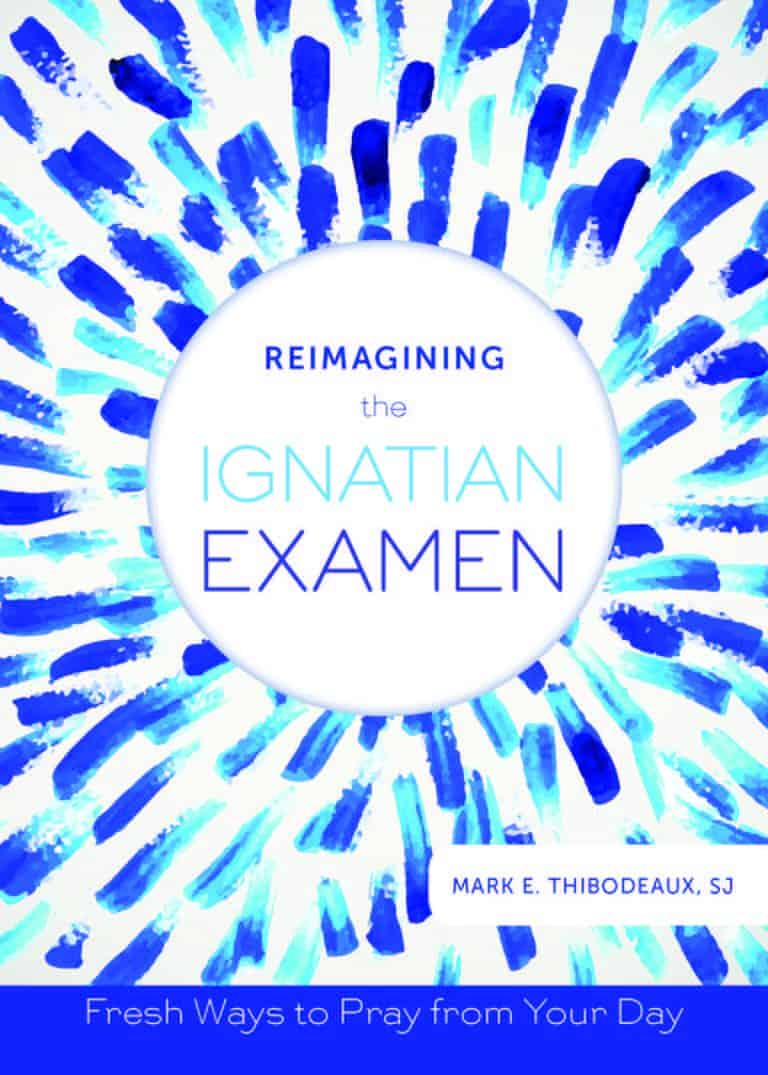Jesuits can often sound like broken records. We like to call schools and parishes “Ignatius” or “Loyola” — or, if we’re feeling wild, “Xavier.” We love to repeat phrases such as “men (and women) for others” or “finding God in all things.” And if you have ever attended a Jesuit school, parish, or retreat house, chances are that you have heard us talk about the Examen. A lot.
St. Ignatius enshrined the Examen, a way of prayerfully reflecting on one’s day, in the Spiritual Exercises. Jesuits are still sharing it with anyone who will listen. But the story is not so simple or linear. Contexts change, as have our ways of praying it.1
Last year, Loyola Press published Reimagining the Ignatian Examen by Mark Thibodeaux, SJ. More recently, Loyola has translated Thibodeaux’s insights into a mobile application that enables users to pray with 34 (!) different versions of the Examen.
One who does not have a clear idea of what to pray about can choose an examen at random;2 one who feels moved to pray with a particular theme can select an examen based on that topic. Balancing “How I Treated Others Today” with “I’m Drained!”, “Who Wore God’s Face Today?”, and 31 other examens makes no particular topic or theme feel like overkill.
The Examen is short and broken down into digestible steps, but limiting it to the same five steps each day greatly narrows the content to which one is exposed. The variety of Reimagining the Examen enables the one praying to be exposed to diverse prompts for prayer over time. Even those who have been praying with the Examen for years can gain new perspectives on this familiar prayer.
Thibodeaux painstakingly uses language that is warm and inviting but also presents the one praying with questions that call for action. The one praying is asked to acknowledge and accept one’s wounds in the presence of God, but also invited to allow such wounds to be transformed for service.
One examen, for example, invites the one praying to acknowledge difficult personal realities — “my ‘hand’ of good personal qualities and not-so-good personal qualities that showed up today.” It also goes beyond such acknowledgment to ask, “How might I use my aces for the good of all, and how might I minimize the impact of my deuces?”
Not only is the content of Thibodeaux’s examens significant, but the medium also matters. St. Ignatius could never have imagined the number of ways we distract ourselves with a single device that fits in our pockets. Just as technological changes have influenced other areas of our lives, they affect how we pray.
For those of us who spend most of our waking hours in front of a screen of some sort, it can often be difficult to unplug during prayer. I have often had the experience of wanting to “check something” online during prayer, only for that to lead to many other “somethings.”
What makes the app based on Thibodeaux’s work so helpful is that when I am praying with it on my phone, I am not using my phone for anything else, particularly because the app takes up the entire screen and hides notifications. Thibodeaux takes what could be — and often is — a great distraction during prayer, and uses it to make some of us more likely to pray.
Using an app to pray is not for everyone. For many of us, however, it’s just what we need, and Mark Thibodeaux’s app-based diversity of examens can be a fruitful way to see how God has been active during my (screen-filled) day.
Check out the app on IOS/Apple or Android/Google Play.
All images were provided by Loyola Press.